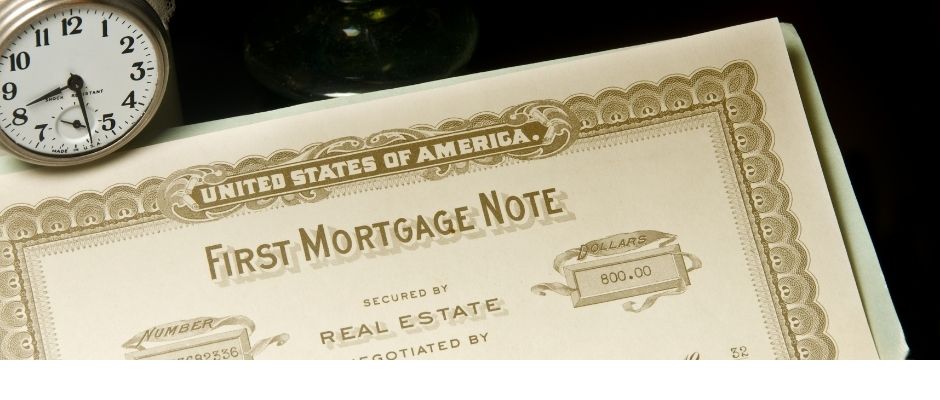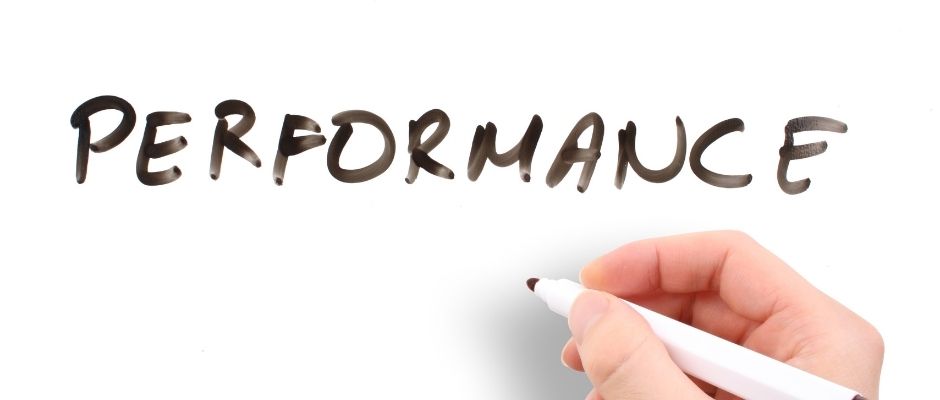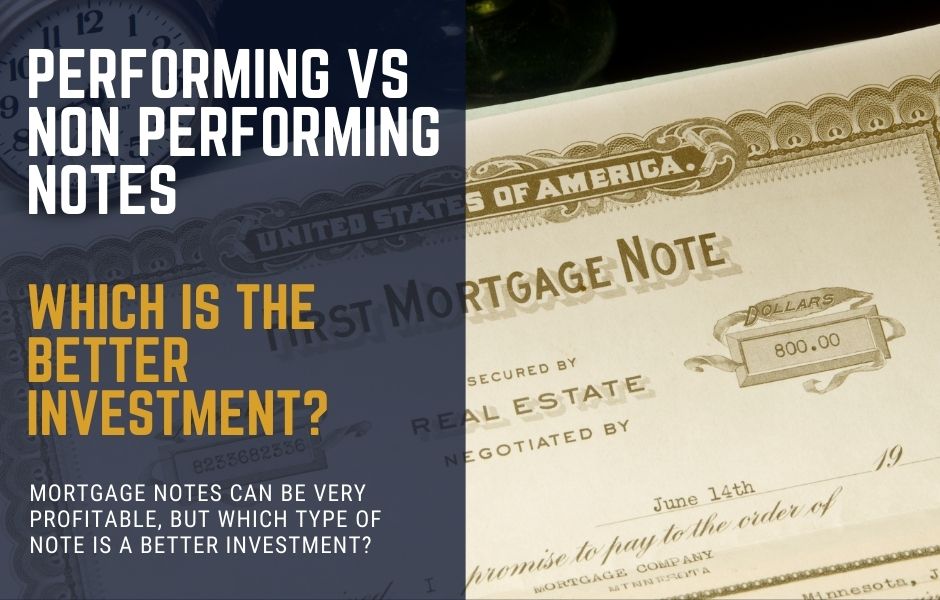Performing vs Non-Performing Notes | Which is the Better Investment?

David Garner
Different Tools for Different Jobs
Mortgage notes can be very profitable investments. Both performing and non performing notes are useful portfolio diversification and risk management tools. But they each carry different types and levels of risk, and achieve different investment objectives.
Here is my quick guide to the key differences between the two, and how to incorporate both into your retirement account or investment portfolio.
Notes for Sale: See Exclusive Off-Market Notes for Sale Every Week in Our Priority Investor Email
Contents:
- What is a Mortgage Note?
- What is a Performing Note?
- What is a Non Performing Note?
- Choosing Your Note Investing Strategy
- A Note of Caution
What is a Mortgage Note?
First let’s clear a few things up. A mortgage and a note are two separate things. When we refer to a ‘mortgage note’ in terms of an investment, we are in fact referring to a promissory note and a lien.
Your promissory note is a contract between the lender and borrower. It contains the terms of the loan such as the amount, interest rate and repayment schedule, as well as clauses that define rights and remedies if either party should default on any of the covenants.
Related: What Terms Should a Good Promissory Note Contain?

Your lien could be a mortgage deed or a deed of trust. This will depend on which State the real estate is located in. The lien is recoded for the amount of the loan in the name of the lender at the County records against the title of the real estate.
There are various types of lien, including 1st position, 2nd position, judgement liens and others. The position and type of the lien will determine the order in which they are paid out if the loan is foreclosed.
Related: My Guide to Lien position and Priority
What is a Performing Note ?
With that out of the way, let’s start with the basics. A note is considered performing when the borrower is current on payments. Notes with a good payment history – know as seasoning – a credible borrower and good collateral are considered pretty low risk, and investors will pay good money for them.
Good quality performing notes can trade for up to 100% of their current balance owed on the note (Unpaid balance or UPB). The general trading range for performing paper is between 75% and 100% of UPB.

Performing notes are income tools, and tend to be purchased by investors that want dependable monthly income, and/or want to diversify their portfolios. I have also seen plenty of former rental property investors turn to note investing and private lending. It tends to be far less hassle!
Related: Performing Notes – What Why and How to Buy
What is a Non Performing Note?
In contrast to a performing note, a note is considered non-performing when the borrower is in default. There are actually 2 stages to this. At 30 days overdue, a loan becomes sub performing. The note become non performing when payments become overdue by more than 90 days, although actual terms vary from one note to another.
The owner of a note is likely to keep hold of their asset until they believe the debt is no longer recoverable. If there is a default, it is usually in the interests of the existing lender to work something out with the borrower, the aim being to make the loan re-perform. So, when a non-performing note comes up for sale it usually means there is no hope of collecting the debt on the original terms of the note.

This is why non performing notes are available for sale at significant discounts to UPB. I personally have bought non-performing notes for as little as 10 cents on the dollar (in 2010). I have also seen them for sale (but have never paid) as high as 50 cents on the dollar.
Non-performing notes are a more opportunistic investment. They are essentially valueless in their current condition, but can be modified to reperform, resold or foreclosed to own or liquidate the real estate. Whilst the profits from successful non performing note investments can be substantial, the process is time consuming, highly nuanced and complex.
Related: Non Performing Notes – Everything You Need to Know
Choosing Your Note Investing Strategy
As I mentioned at the very beginning of this article, different types of notes achieve different investment objectives. The type of note you buy will ultimately be deigned by your desired outcome, or vice versa.
Here are 7 of the primary mortgage note investing strategies used by investors:
- Flipping notes to other investors (wholesale to retail)
- Rehabbing notes and reselling to other investors (value add)
- Purchasing notes to own and/or sell the real estate
- Originating seller financed notes for income or resale
- Rehabbing notes and keeping them for income
- Buying performing notes for income
- Making private money loans to RE investors
Most note investors use more than one of these investment strategies. In some cases it may be most appropriate to flip or resell a note. Other times it may be better to keep it for the income. A lot of that will depends on your own goals.

If you are looking to generate regular income, then you want to own performing notes. That could mean buying performing notes from other investors, it could mean originating your own loans as a private lender, or it could mean buying non performing or sub performing notes and working to get them re-performing.
Exactly how you come to acquire performing notes – whether you buy them or create them – depends on how much time, effort and resources you are willing to commit to the process.
If you have the will and resources, and you are prepared to really learn the game, you can hunt for the bigger profits in non performing notes. Again, this is not easy, and it doesn’t always work out, but the financial rewards can be significant.
For the most passive way to invest in notes, you might want to learn more about private lending. That’s where you originate your own loan the real estate investors for their projects.

So, deciding where to pitch your tent in the performing vs non-performing notes debate will depend largely on your personal goals and commitment. You should take into account your investment criteria, appetite for risk, and the amount of time and resources you are prepared to commit to your investments.
Related: How to Invest in Real Estate Notes – 7 Note Investing Strategies
A Note of Caution
At this point I’d like to issue a word of warning.
I have been in this game (real estate and notes) in one way or another for 10 years. A lot has changed over the years. I have won some and lost some. But one thing that has remained worryingly constant is the promotion of non-performing notes to inexperienced investors as some kind of magical profit machine.
You do not have to search for long to find a ‘broker’ or ‘adviser’ offering you the opportunity to invest in non-performing mortgages at “crazy low prices”. Always with the promise of big easy returns.

Investors with lots of capital will often buy entire loan portfolios from financial institutions. In doing so they take the rough with the smooth. They tend to end up with a lot of poor quality paper that they are unwilling or unable to work out to a profitable exit. Ultimately, these notes end up for sale in the public domain.
Now don’t get me wrong, if you can successfully turn round a non-performing loan you will make good money. And there are lots of ways to do that. But there is a lot of work that goes into ‘rehabbing’ a note. Some will take up a huge amount of time and resources only to result in a financial loss.
If you are determined to chase the big bucks, by far the best investment you can make is in your own education. Learn the game. Read the books. Speak to investors in the space. It can all be done but it takes knowledge and experience – so start acquiring those things first!
More Note Investing and Private Lending Articles
- Where to Buy Mortgage Notes – A Complete List of Verified Sources
- Private Lending 101 | The Complete Guide to Private Money Lending
- Note Investing 101 – Everything you Need to Know About Note Investing
- How to Invest in Notes – 7 Note Investing Strategies
- What is a Note and What Terms Should It Contain?
- Performing vs Non-Performing Notes – Which is the Better Investment?
- The Private Lender’s Guide to Assessing Credit Risk
- Understanding Lien Position and Priority
- How to Buy Mortgage Notes Online in 2021
- How to Assess Real Estate for note Investing and Private Lending
- Find Performing Notes for Sale in 2021
- Private Lending 101 – Everything you Need to Know About Private Money Lending
- Is Buying Mortgage Notes a Good Investment in 2021?
- Note Investing vs Rental Properties – Which is the Best Investment?
- Performing Notes – What Why and How to Buy
- Is Real Estate Note Investing Risky?
- Real Estate Notes vs REITs – Which is the Better Investment?
- The 3 Best Real Estate Investing Opportunities in 2021
- What is the Difference Between a Note and a Mortgage?
- Real Estate Notes – Everything You Need to Know
- My Top 5 Real Estate Note Investing Tools and Resources
- 3 Note Investing Funds for Passive Investors
- Using Note Investing to Boost Your Monthly Income
- Non Performing Notes – Everything You Need to Know
External Resources:


